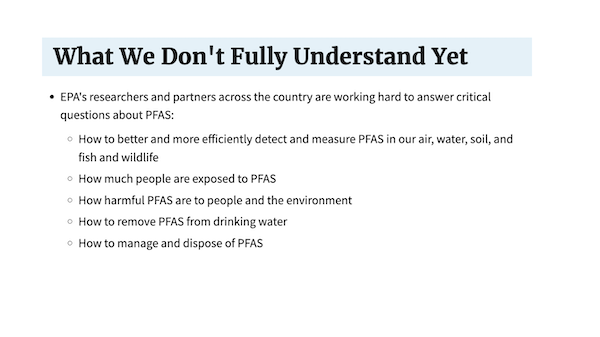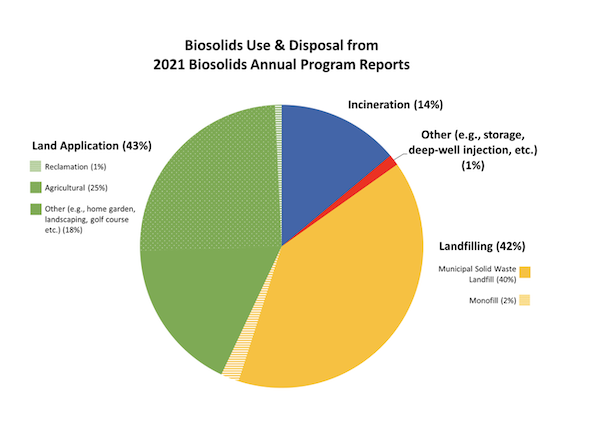John Phipps: What We Still Don't Know About PFAS
U.S. Farm Report 11/04/23 - Customer Support on PFAS
Two comments from Maine viewers about municipal sludge:
“Sludge and sewage contain PFAS and the state of Maine has banned using it since 2022. I disagree with the Report John made Sunday morning.” - Eric Edmundson
“I'm curious why John did not mention PFAS in his recent discussion on using waste treatment sludge as fertilizer? Its use has become a disaster here in Maine.” - Rick Blease
It is not a coincidence that two viewers from Maine responded – Maine has the only and strictest limits on chemicals called PFAS in the country, and also previously encouraged the use of municipal sludge. Very few states have any regulations at all.
The EPA continues to study the situation, but has not defined a PFAS contamination limit. PFAS contain carbon-fluorine chains and were widely used in consumer and industrial products, largely due to water repellant qualities. They became categorized “forever chemicals” which strikes me as meaningless since water and granite are forever chemicals if you stop and think about it. There are over 4,000 man-made forever chemicals.

We don’t know how PFAS enter the food chain. For example, soil treated with sludge containing PFAS grows contaminated lettuce, but not potatoes; corn stalks may contain PFAS, but not the kernels.
Despite considerable alarm from Maine farmers – the handful of which I read about were organic producers – there is no consensus on how harmful these substance levels are. It seems that the closer to the consumer the greater the possibility of PFAS being passed from sludge, which complicates growers who consider this close connection a benefit. Not all municipal sludge contains significant PFAS contamination.

In fact, here’s what the EPA says we DON’T know: How to detect PFAS, how much exposure people are experiencing, how we are exposed, how harmful they are, how to remove them from water, and how to dispose of them. Landfills and incinerators may actually be worse than spreading sludge.
PFAS are rapidly being phased out by industry. There are farm operations ruined by PFAS due to the inability to meet organic standards, but no evidence to date of a pervasive threat to people or land.
The debate will undoubtedly intensify as more research is conducted.







